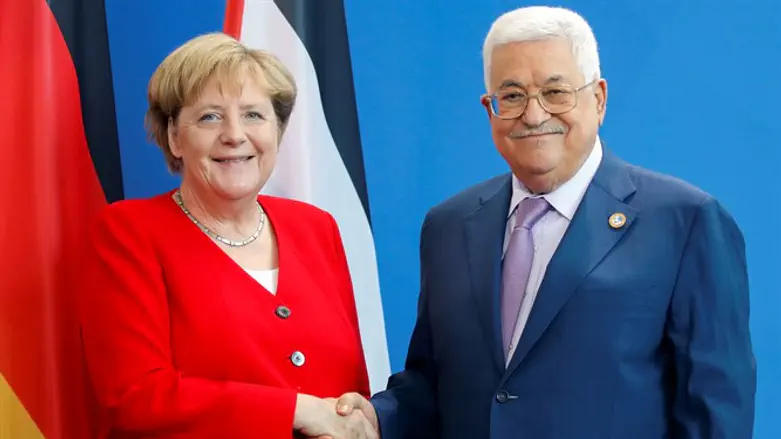
Palestinian Authority (PA) chairman Mahmoud Abbas on Monday discussed the PA rejection of the US peace deal in a telephone call with German Chancellor Angela Merkel.
The two also discussed the opposition of the Arab League, the Organization of Islamic Cooperation and the African Union to the US plan, according to the PA’s official Wafa news agency.
They also discussed European, Russian, Chinese and Japanese positions in support of international legitimacy and a two-state solution based on international terms of reference.
Abbas gave a detailed explanation of the alternative initiative that was put before the Security Council and that is approved by the majority of the countries of the world, which is to hold an international peace conference and establish an international multilateral mechanism.
He called on Germany to join this mechanism to sponsor negotiations on the basis of international legitimacy and the Arab Peace Initiative.
After US President Donald Trump unveiled the “Deal of the Century”, Germany struck a cautious tone, saying in response the plan raises questions that need to be addressed.
Foreign Minister Heiko Maas said in a statement at the time that “only a negotiated two-state solution that is acceptable to both parties can lead to lasting peace between Israelis and Palestinians.”
Maas added the US proposal “raises questions” that Germany will discuss with its European partners.
On Monday, according to Wafa, Merkel confirmed to Abbas that Germany will continue to support peace based on vision of a two-state solution, and that Germany will continue its role to achieve that end.
Abbas was quick to reject the US plan when it was unveiled and said it would be relegated to the "dustbin of history."
Meanwhile, the EU’s foreign affairs chief Josep Borrell said on Monday that the EU will not pass any official resolutions on Trump's peace plan until after Israeli elections.
Borrell criticized Trump's Middle East initiative after it was released, saying the Israelis and Palestinians should directly negotiate a two-state solution based on the borders that existed before the 1967 Six Day War.

